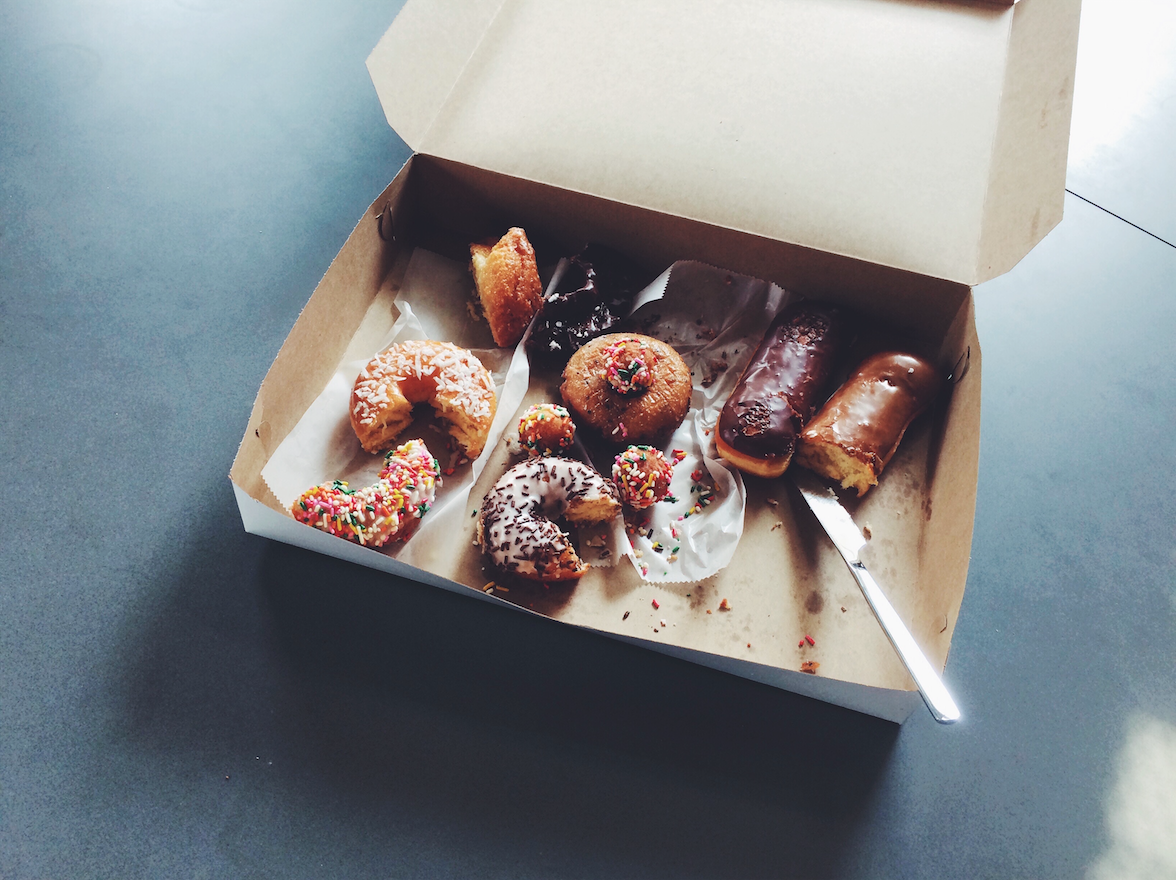Do you find yourself judging, labeling, criticizing and shaming your food choices? Has eating become a chore rather than an enjoyable way to nourish your body? You are not alone. This negative relationship with food and our bodies, although subtle, is common. I spoke with Kelly Ulmer M.Ed, Ed.S, a counselor who specializes in eating disorders and intuitive eating, to learn more about the signs of unhealthy relationships with food.
Motivation
Why are we choosing to diet? Is it because we want to nourish our bodies with more nutrient-dense foods? Are there medical reasons, like allergies, that require certain restrictions? Or is it because we want to fit into that pair of skinny jeans from 10 years ago? It is understandable and beneficial to desire health and fitness however it can become detrimental when our motivation is exclusively external. Why? Because, when our primary drive is to look good, dieting can lead to unhealthy choices, habits, and behaviors surrounding food. It may also indicate a deeper issue — an internal struggle or emotional void that is manifesting as a need to lose weight and diet.
Restriction
“One of the biggest things that determines if a person’s relationship with food is unhealthy is whether it’s causing impairment in other areas of their life,” said Ulmer. This impairment can show up in multiple forms. Restriction is a big one. Restricting ourselves socially, for example, might look like not attending certain social activities or having anxiety surrounding events where there may be food we consider “not OK” to put in our bodies. Another example is if we are restricting, or cutting out, whole food groups (macronutrients), without having a medical or ethical reason to do so. Kelly points out the contradictory nature of many popular diets that call for the elimination of entire food groups, and how diet after diet, decade after decade, there has been disparity between what’s deemed “healthy” versus “unhealthy.”
Food labeling and your internal dialogue
Food labeling and self-criticism are arguably the most pervasive, yet subtle indicators that our relationship with food is becoming unhealthy. It is common, even acceptable, to hear comments like, “Oh, I was so bad today — I ate three cookies.” Statements like this, seemingly innocent, can be damaging. Having a dichotomous view of foods, labeling them as either “good” or “bad,” places moral judgment on food choices, which extends to judgment on ourselves for making these choices. This can lead to a dangerous mental state, where self-worth is determined by our eating habits.
Exercise is not fun anymore
While exercise is not directly related to eating behaviors, it makes the list because it is highly enmeshed with our food/body relationship. Our bodies were designed to move; they crave exercise. But when exercise stops being enjoyable and turns into a dreaded obligation, we may be entering unhealthy territory. If we are unable to be flexible with a workout routine, and it becomes a rigid “have-to;” or we are hyper-focused on burning calories for increased food allowance, we may want to question these behaviors.
Related articles:
6 Motivational Books To Turn Your Day Around
7 Tips To Help Ease Anxiety During COVID-19
3 Steps To Improve Your Digestion Today

